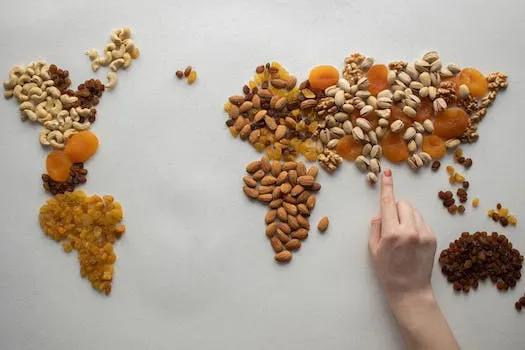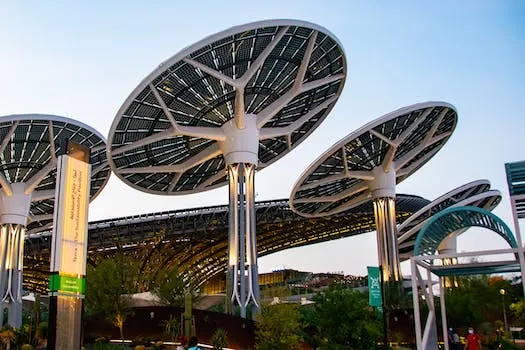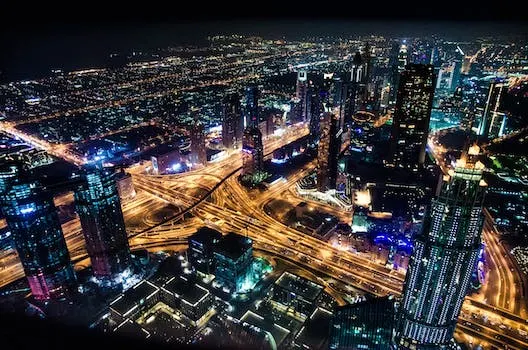
The Impact of an Individual's Ecological Footprint
Understanding the impact of an individual's ecological footprint is essential for preserving our planet. Every choice we make, from the food we consume to the way we travel, has a significant effect on our environment. In this blogpost, you will learn how to reduce your environmental footprint through better food choices.
Food miles is a measure of the distance food travels from its point of production to its point of consumption and it can be a major contributor to greenhouse emissions and climate change. It is important to understand how far your food has traveled in order to reduce your environmental impact. There are many ways that individuals can lessen their ecological footprint by making better food choices. For example, buying locally grown produce reduces transportation costs and emissions associated with long-distance shipping or air freighting products across countries or continents. Eating seasonally also helps reduce energy costs associated with refrigeration and storage as well as reducing waste due to spoilage or overproduction of certain items out of season. Additionally, choosing organic foods helps support sustainable farming practices that protect soil health and biodiversity while avoiding synthetic fertilizers and pesticides which can pollute water sources and harm wildlife habitats.
By understanding our individual ecological footprints, we can make more informed decisions about what we eat in order to minimize our environmental impact while still enjoying delicious meals every day!
The Impact of Food Consumption
The way we consume food has a large impact on our ecological footprint. From the transport of food from far away places to the packaging materials used, it is clear that our food consumption habits can have a detrimental effect on the environment. In fact, global greenhouse gas emissions from food production account for over a quarter (26%) of all emissions. Additionally, half of the world's habitable land is used for agriculture and transportation comprises 14% of all energy used in this system.
Western society often purchases food grown more than 1000 miles away and transported to local grocery stores, resulting in a heavy carbon footprint due to its long journey. Knowing where your ingredients come from can help you shop more sustainably and reduce your ecological footprint. Buying locally grown foods whenever possible is an excellent way to do this as it not only helps support local farmers and businesses but also results in fresher and healthier produce that is often cheaper than imported goods.
The entire process of growing, rearing, farming, processing, transporting, storing, distributing preparing consuming and disposing of food creates greenhouse gases that contribute significantly to climate change. Therefore reducing our individual carbon footprints by making conscious decisions about what we eat can have an immense positive impact on the environment as well as our own health!
The Impact of Transportation
Using public transportation, walking, or biking instead of driving can have a significant impact on an individual's ecological footprint. Taking the bus or train instead of flying is also a great way to reduce carbon emissions. Carpooling with one more passenger can also help to reduce emissions from car transportation. Bicycling and walking are the most efficient forms of transportation when it comes to reducing carbon emissions from fossil fuels. Flying on a short flight or driving alone are the most carbon-intensive travel methods, so whenever possible it is best to take public transit or bike instead. Learning about the effects of carbon pollution from transportation is important in order to understand how our actions affect our environment and climate change.
The Impact of Waste
The amount of waste that we produce can have a significant impact on our ecological footprint. When waste is not recycled properly, it can lead to an increase in pollution. To reduce the amount of waste produced, individuals should use reusable items whenever possible and recycle their waste when they can. Composting is another way to reduce the amount of waste going into landfills as composting increases water retention, decreases erosion and keeps organic materials out of landfills. Unfortunately, many recyclables become contaminated when placed in the wrong bin or when dirty food containers get into recycling bins.
The reliance on plastic has caused a staggering rate of production with 300 million tons being produced each year worldwide. Recycling helps to reduce the amount of trash going to landfills but its greatest environmental benefit is conserving energy and natural resources. To further reduce the amount of waste produced, people should purchase products with less packaging or packaging that can be recycled. If changes are not made soon regarding how plastic is produced, used and disposed off then it could result in nearly triple the current 9-14 million tons entering aquatic ecosystems annually by 2025 unless something changes soon. It's clear that reducing our individual ecological footprints starts with reducing our own personal production and consumption habits which includes reducing our own personal production and consumption habits such as using reusable items instead of disposable ones whenever possible as well as recycling whatever we can't reuse or composting what we cannot recycle so that it doesn't end up in a landfill polluting our environment even more than it already has been polluted by us humans over time due to irresponsible disposal practices.
Conclusion
In conclusion, it is clear that our individual choices can have a large impact on our ecological footprint. By making small changes to our lifestyle, such as eating local and in season, reducing consumption of food and other resources, using sustainable transportation options and reducing waste, we can help to create a better future for our planet. Additionally, choosing products from companies who use resources responsibly and are committed to cutting their gas emissions and waste is an effective way to reduce environmental impact. Finally, individuals can make a difference by reducing their personal greenhouse gas emissions through various methods such as carpooling or biking instead of driving alone. With these steps in mind, we can all work together towards creating a more sustainable future for the planet.










